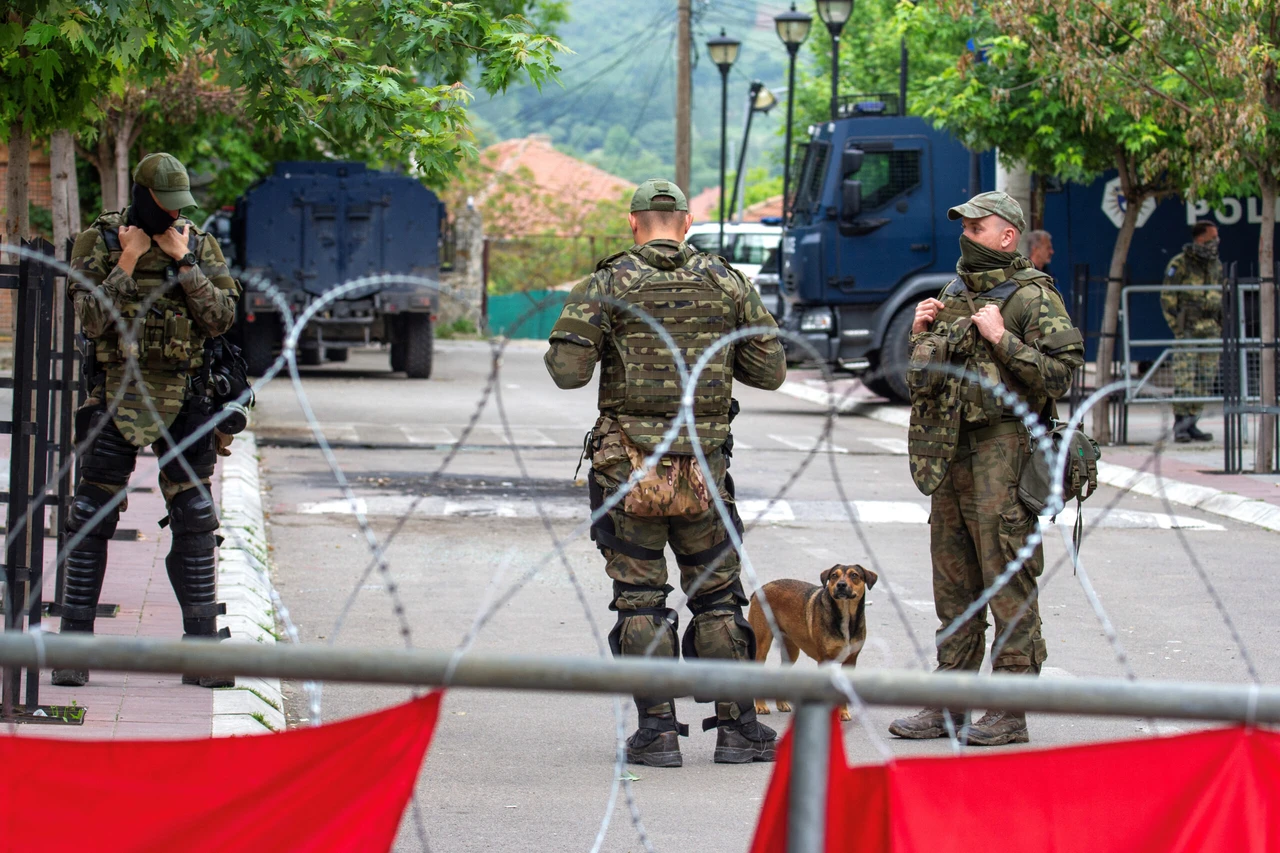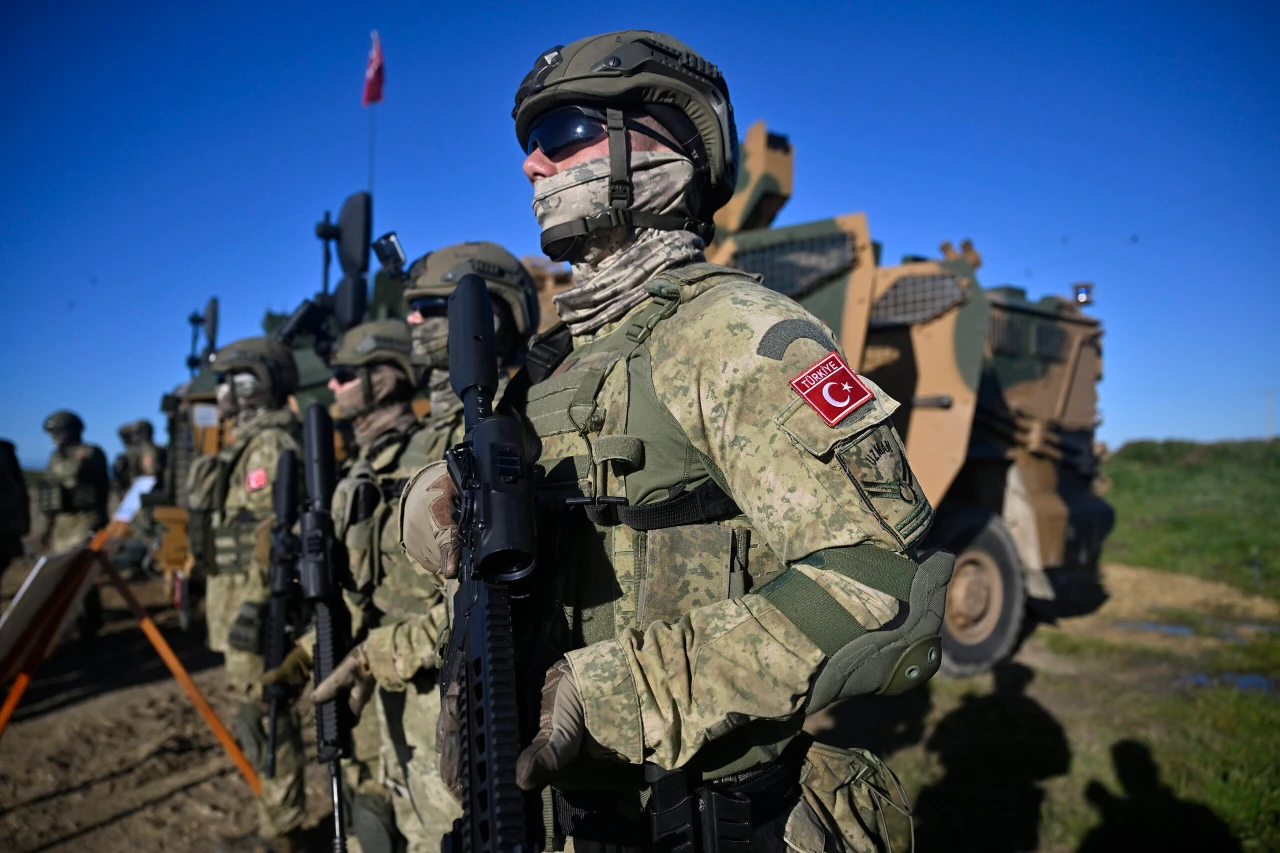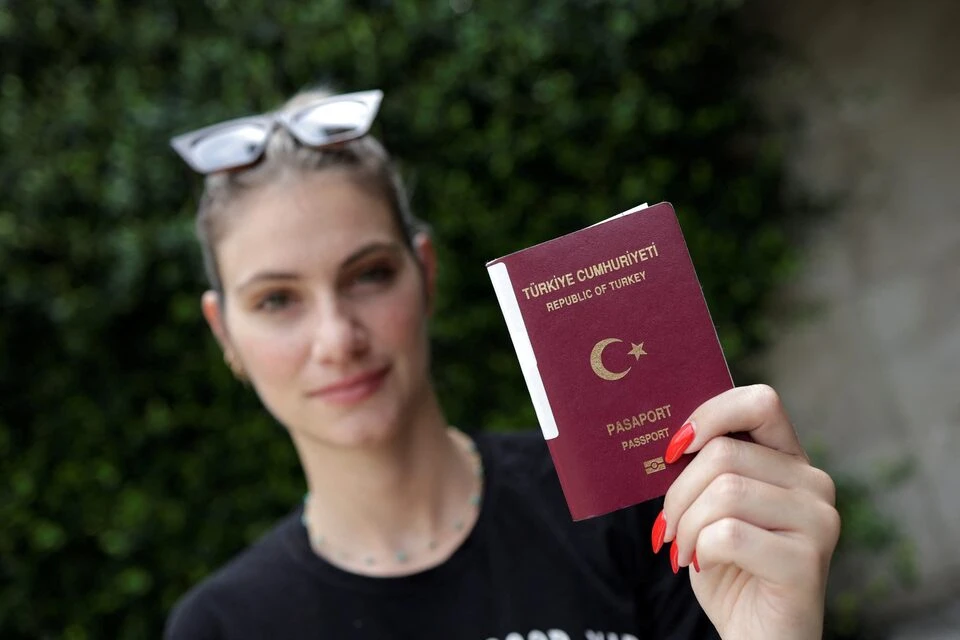NATO warns Kosovo against reopening Mitrovica Bridge amid rising tensions
 Kosovo Force (KFOR) soldiers stand guard behind razor wire fence in the town of Zvecan, Kosovo, June 5, 2023. (Reuters Photo)
Kosovo Force (KFOR) soldiers stand guard behind razor wire fence in the town of Zvecan, Kosovo, June 5, 2023. (Reuters Photo)
NATO’s peacekeeping force in Kosovo, KFOR, issued a stern warning on Tuesday to the Kosovo government, cautioning against any attempts to reopen a bridge in Mitrovica that has historically separated Serb and ethnic Albanian communities.
The bridge over the Ibar River has been closed to vehicle traffic for several years due to frequent clashes that have occurred since the 1999 war between Serbian forces and Kosovo’s ethnic Albanian majority. The conflict, which resulted in approximately 13,000 deaths, ended following a NATO-led bombing campaign spearheaded by Washington.
KFOR emphasized its readiness to intervene if Kosovo authorities proceed with plans to open the bridge. In a statement, KFOR declared it would “not hesitate” to act against any developments that could disrupt the security environment or regional stability. The peacekeeping force maintains a robust presence at the bridge and conducts regular patrols to ensure the area remains secure for all local communities.
The warning came after members of Kosovo’s ethnic-Albanian-dominated government recently visited the bridge to oversee a “technical inspection” and evaluate the possibility of reopening it. Prime Minister Albin Kurti had previously called for the bridge’s reopening during a meeting with Western ambassadors, asserting that it “must be opened.”
This development follows a series of escalating tensions between Kosovo and Serbia. On Monday, Kosovo authorities conducted raids on nine Serbian post office branches near the northern border with Serbia. These post offices had been used to handle financial transactions, including pensions and transfers to Serbian institutions.
The longstanding animosity traces back to the late 1990s conflict, and Kosovo’s declaration of independence in 2008 remains unrecognized by Serbia.
The discord between the two nations has intensified over recent months, particularly after Kosovo implemented a rule making the euro the sole legal currency, effectively banning the use of the Serbian dinar. This move, following the collapse of EU- and US-backed negotiations, has further strained relations, with Belgrade financing a parallel system for the Serbian minority in Kosovo.



